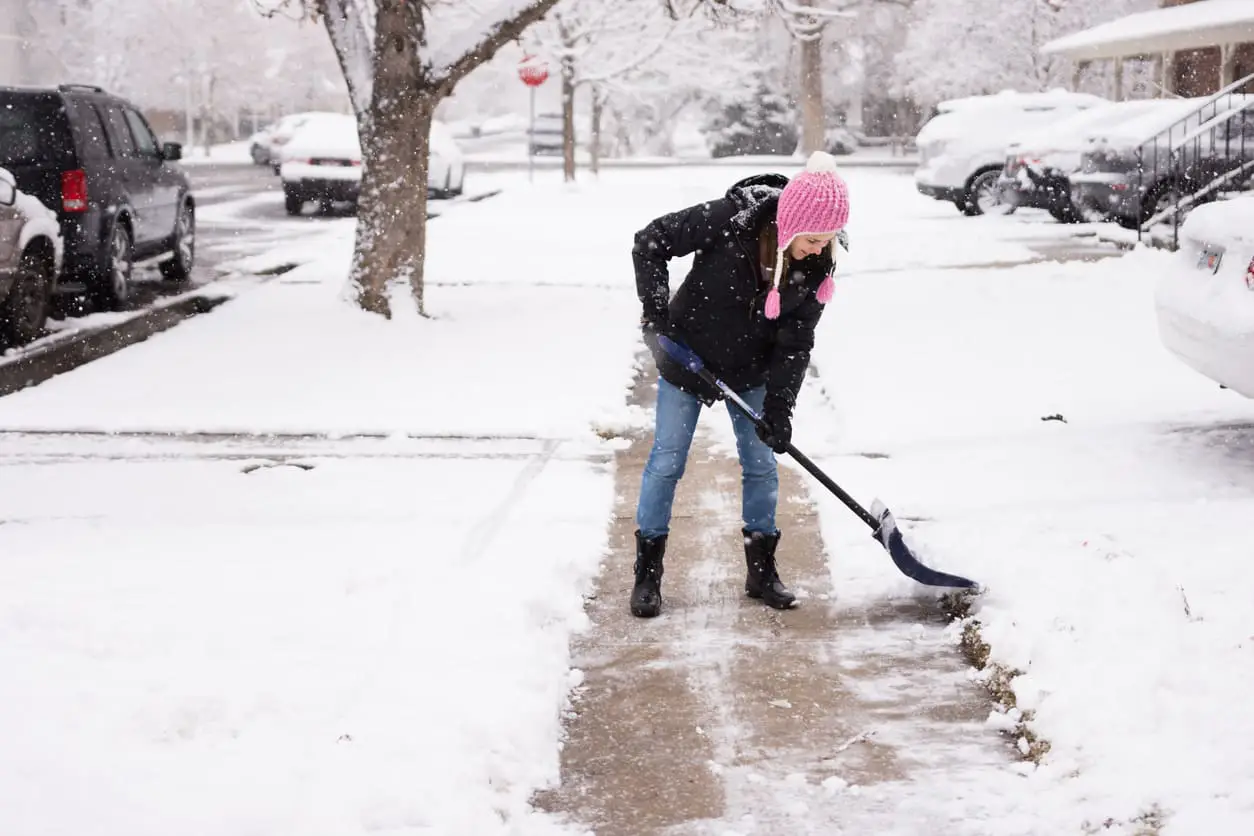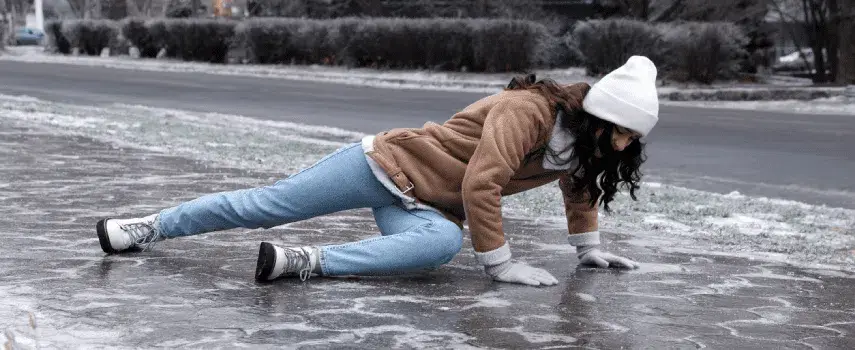Winter has arrived, and with it usually comes a lot of ice and snow. A snowy landscape makes for beautiful scenery, but it also increases the chance of slipping and falling. While most people who slip and fall on ice don’t sustain life-threatening injuries, others can end up in the hospital for days.
If you miss work because of a slip and fall accident, your financial obligations may not be met. This can cause significant hardship, in addition to the pain from the accident. Thankfully, you might be eligible to receive financial compensation if someone is responsible. If you’ve been hurt after slipping and falling on snow or ice in a public area, here’s what you need to know about filing a personal injury claim.
Winter Weather Risks and The Property Owner’s Responsibility
In most cases, snow and ice accumulation is the responsibility of the property owner or business. As a general rule, property owners have an obligation to ensure the security of areas where members of the public and customers are likely to be. If someone is injured because a property owner didn’t properly shovel or salt their entryway or the sidewalk, the owner could be held liable for any resulting medical bills. To hold a property owner liable for injury sustained on their property, you must prove that they were negligent.
However, the public has a responsibility to take precautions when venturing into an area where snow and ice are likely to be present. Depending on the contributory/comparative negligence standards of the jurisdiction in which the accident occurred, your ability to recover damages for injuries sustained may be reduced or even eliminated if you fail to exercise reasonable care.
Reasonability and “Natural Accumulation” Principle
Where a slip and fall event takes place can be a factor in determining what a landowner is expected to do to remove snow and ice. What is reasonable in New York may differ from what is reasonable in Minnesota. Furthermore, the “natural accumulation” rule exists in several states to absolve property owners of responsibility for snow and ice accumulation that occurs naturally. In states where this law applies, it may be difficult to hold the property owner(s) accountable if they haven’t tampered with or altered the accumulation and there isn’t any significant threat.
If you have been injured in an accident and need to know how local property laws could affect your case, you should consult with an experienced personal injury or premises liability attorney.
Government Liability for a Slip and Fall
Generally speaking, if you were hurt in a fall on public property like a city sidewalk or county parking lot, you won’t be able to sue the government for damages (at least not right off the bat). Local and state governments enjoy broad immunity from civil lawsuits, although they have renounced this protection in certain circumstances. You need to get the claims process rolling with the government agency that could be liable as soon as possible after your injury, and in most places, that agency has stringent deadlines for filing claims.
Sidewalk Law in NYC
Liability for a fall on a sidewalk can be difficult to determine. Even though sidewalks are largely used by the public, the city may not always be in charge of keeping them in a safe condition. Surprisingly, the City’s responsibility for sidewalk repair only applies in a few specific cases. Since 2003, when New York City Administrative Code 7-210 went into effect, the City’s responsibility and accountability for the sidewalk where a fall occurs has been transferred to the owners of the surrounding buildings.
The “Sidewalk Law,” also known as 7-210, holds adjacent property owners accountable for maintaining the sidewalk that borders their land. The law requires the walkway to be in a “reasonably safe state” at all times. This means that adjacent property owners have a set amount of time to clear their sidewalks of snow and ice and fix any damage. When this is not done, the owner, manager, or another person may be held liable for any injuries sustained by visitors as a result of trips and falls on unprotected surfaces.
Possible Compensation for Slip and Fall Accident

If you slip and fall, you may be entitled to sue the property owner and maybe the contractor responsible for snow and ice removal to recoup the cost of your medical care.
If you can prove that your injuries required you to skip work (or reduce your hours worked) because of their severity, you may receive compensation for your lost pay.
And if the injury has prevented you from doing things like working out, doing housework, or having fun, you may be eligible to get compensation for that as well. The total of these parts is what constitutes your compensation for an injury.
Establishing Your Case
It’s vital to record as much information about your accident and the location of where you fell as you can because environmental conditions change regularly. Take pictures, or arrange to have them taken, of the scene as it appeared right after the accident. Because snow and ice are usually removed on a predetermined schedule, it is important that you provide your attorney with a clear picture of the scene as it appeared when you were hurt. After the incident, jot down every detail of what transpired as quickly as possible. You should get the names and numbers of everybody who came to the accident scene or saw what happened.


